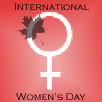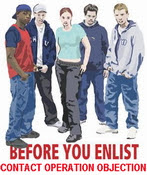 Top Israeli politician visits as Conservatives woo Jewish vote
Top Israeli politician visits as Conservatives woo Jewish vote
Canadian Press March 13, 2007
OTTAWA (CP) - The woman described in some quarters as Israel's second-most powerful politician is making a rare visit here amid an ongoing Conservative charm offensive aimed at Jewish voters.
Foreign Affairs Minister Tzipi Livni arrived under tight security Monday for her first trip to Canada since being named to the post last year.
She is to meet Tuesday with her Canadian counterpart Peter MacKay during a whirlwind one-day trip. The Ottawa stopover between meetings in Washington and New York is the latest sign that relations between Israel and the Conservative government could hardly be warmer.
It follows MacKay's Mideast tour in January, and the glowing welcome he received from Livni's ministry when he arrived in Jerusalem.
"Since its election in January 2006, the Canadian government headed by Prime Minister Stephen Harper has maintained particularly warm relations with Israel," Livni's office said at the time.
It went on to add: "Bilateral and diplomatic ties are currently at their peak."
"Canada has been at the forefront of the international efforts against the Iranian nuclear threat. The Harper government was the first to boycott Hamas immediately after its election, and supported Israel during the Lebanon war against Hezbollah."
MacKay noted after his January meeting with Livni that the two had become "regular friends."
The ministers formed a "human bond of trust and frank discussion," he said, as consular staff worked overtime to evacuate Canadian citizens stranded in Lebanon during last summer's conflict.
Livni has praised MacKay as someone who "knows how to make distinctions between right and wrong" and as "a leader of a country uniquely situated to help the moderates against the region's ideological extremists, like Hezbollah and Iran."
During a briefing with reporters late Monday, Livni reiterated that Iran's nuclear ambitions and its pledge to "wipe Israel off the map" are the real threat in the Middle East - not the ongoing Israeli-Palestinian dispute.
She urged the international community to expand sanctions against Iran.
"If the international community won't do it, I believe we'll see a kind of domino effect" as extremists in other states take strength from global complacency, she said.
Livni said she planned to have a long meeting Tuesday with MacKay to discuss such concerns. Her visit comes as the Conservatives continue to reach out to Jewish voters.
Harper heated up those efforts in a speech to the Canadian Council for Israel last month. He noted that his party alone endorsed Israel's month-long bombing campaign against Hezbollah in Lebanon last summer.
"We got a pretty sharp reminder that it's one thing to offer supportive words to Israel when it's convenient," he said. "And (it's) quite another to stand firm in its hour of need."
That sharp reminder came in a hail of criticism - especially over Harper's description of the Israeli bombings as a "measured" response to the kidnapping of two of its soldiers after sustained rocket attacks and other provocations by Hezbollah militants.
Israeli reprisals killed more than 1,000 people and laid waste to huge swaths of Lebanon's infrastructure.
Another sore point among critics is Ottawa's decision to cut funding and diplomatic ties to the Palestinian Authority last year.
Canada became the first country after Israel to make such a move after Hamas won a surprise victory in Palestinian elections. Hamas, listed as a terrorist organization in Canada, refused international pressure to renounce violence.
The Conservatives offered to continue humanitarian aid to Palestinians, including thousands living in refugee camps, through the United Nations and other agencies.
Mohamed Boudjenane, executive director of the Canadian Arab Federation, says Canada's new pro-Israel "bias" has cost its credibility as a so-called "honest broker" in related peace talks.
"Like it or not, at the end of the day, Hamas was elected by the Palestinians - democratically," he said Monday in an interview.
"It was the most transparent, open and democratic process. How can we deny to people, who decide to elect their government democratically, the right to do so? Especially when we invade (other) countries to pretend to go there and export democracy?"
"What kind of message are we sending as Canadians to ... other parts of the Arab world?"
Tuesday, March 13, 2007
conservatives solicite the vote
Posted by audacious at 13.3.07
Labels: canada politics, palestinians
Subscribe to:
Post Comments
(Atom)










































0 comments:
Post a Comment